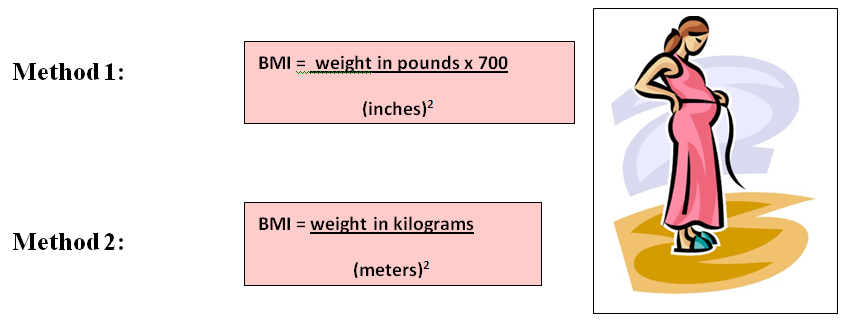Coping with the difficulty of getting pregnant and having the diagnosis of Polycystic Ovarian Syndrome (PCOS) can be like an emotional roller-coaster. You may be feeling discouraged and wonder if your dream of having a baby is out of your reach. These feelings are understandable and the good news is that there is lots of hope for you! These are only issues you need to deal with, not permanent roadblocks to your goals.

By gaining a better understanding of how your weight and overall fitness level plays a vital role in being able to conceive, you will know what you need to focus on.
For PCOS women who are overweight, getting pregnant can be an extremely difficult task. The good news is that quality studies out of the US and Australia have proven that women who lose 5% or more of their body weight can increase their chance of getting pregnant by around 70-80%. Those are great numbers! ……..There is a ton of upside potential to dropping those unwanted pounds!
The goal you should have in mind is to get to a Body Mass Index (BMI) of between 20-24. BMI is a number that compares your height and weight, and gives a good estimate of a healthy body weight by taking into account how tall you are. You can easily check this yourself by dividing your weight by your height. So, for a person who is 5 feet tall, and weighs 200 pounds (200 / 5), her BMI would be 40. To get to a BMI of 22, that same person would need to get their weight down to 110 pounds. However, for women who are overweight/obese, there has been a strong link between losing 70 pounds and being able to get pregnant quickly. Keep that number as a benchmark, but ensure that you keep your larger goal to get to an optimal BMI number of 20-24 for good overall health.

Below are some Tips To help you Get Started:
- The main aim is for a slow and gradual weight loss of about 0.5 -1kg (2lb) per week. You will need to burn off more calories than you take in, and that means you need to exercise as well. So have a plan and set a realistic weight target and specific dates. It is also a good idea to keep a food calorie diary of what you’ve eaten. Studies have shown that by making notes about weight, food intake, and calories help women keep the momentum for weight loss.
- The best diet is the Low Glycemic diet: The majority of PCOS women achieve healthy and lasting weight loss on a lower glycaemic index (GI) nutritious diet. So for you, this is the best style of diet to use. This is a diet slightly higher in protein and has complex carbohydrates rather than the refined carbohydrates. The glycaemic index (GI) measures how quickly a particular carbohydrate affects blood sugar levels. The higher the number, the quicker the rise in blood sugar. The lower the GI the slower the rise and therefore there is the feeling of being more satiated, with fewer cravings and better energy levels. Eg. Refined or starchy foods like white bread, rice and potatoes have a high GI. Non starchy vegetables, fruit, peas and other legumes have a low GI.
- Try to drink about 8 glasses of fresh water a day, especially a glass 20 minutes before each meal to take the edge off your appetite. This is an old trick, but it works and you tend to eat less as you feel full for longer. 8 glasses may sound a lot but after a few days you will get used to it. Keep a jug of water close to you, or put some lemon in it.
- Include more fresh vegetables and fruits in your diet, and eat fresh healthy preferably organic food. Pile your plate high with plenty of vegetables. 5 servings of different fruit and vegetables are recommended every day.
- Reduce your consumption of animal and dairy fats. Look for products that contain less than 10% fat. Protein is important for your fertility as well, because it helps to maintain a supply of amino acids to build and repair cells and manufacture hormones. The recommended daily intake is .75grams per kilo of body weight. Only eat lean ideally grilled meats and low fat dairy products. Other sources of protein are eggs, legumes, nuts and seeds.
- Increase your intake of fibre by eating cereals such as muesli and by choosing good carbohydrates such as brown rice, pasta and bread. These help maintain steady blood sugar levels, and contain vitamins B and E essential for cell growth.
- Try to eat fish such as Salmon at least twice a week, this is good for hormone production when trying to conceive.
- Eat three meals a day – breakfast, lunch and dinner, but watch your portion size. No matter how healthy the food may be. It is still about energy input versus energy output.
- Slow down your eating and chew thoroughly, perhaps putting your knife and fork down between each mouthful.
- Keep busy: People eat when they are bored
- See a dietician. Studies show that having a regular weekly meeting with a dietician can help you on the right path and speed up weight loss.
Take control of your life, and make that commitment to start today!
Have a look at our How To Get Pregnant With PCOS Facebook Page and join like minded PCOS women.
